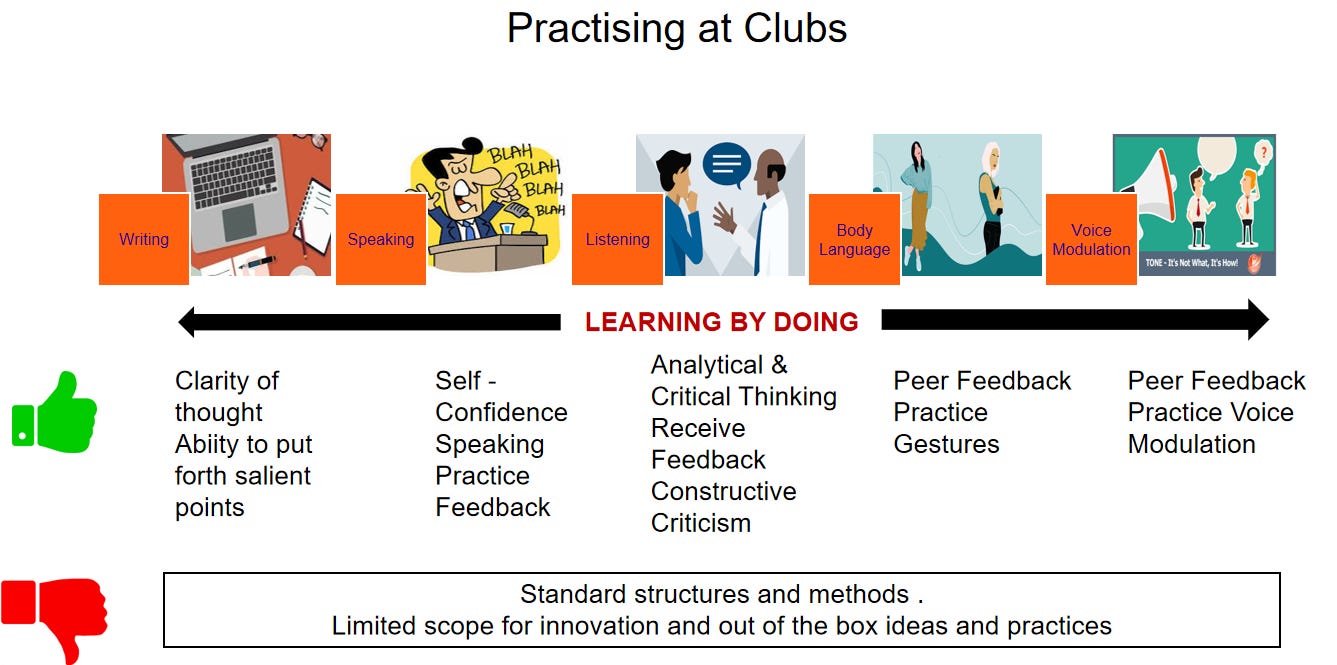Communication & Leadership
Communication is the bedrock for managing people, and the higher you are in the organization hierarchy the more relevant it becomes. It is in fact one of the most critical skills required for effective leadership. The Centre for Creative Leadership talks about the core skills for every leadership role. Out of the four two of them are communication and influence.
Can communication be learnt? The answer is a YES and a NO. Attending training programs or webinars or acquiring knowledge about the ‘how’ though useful is just not enough. Most take recourse to this mode as it is easily available. But communication is a soft skill. It requires attention & time and is developed by constant practice.
The way we communicate
The key point to emphasize here that unless there is a good opportunity to practice these all these ways to communicate, we cannot be effective.
The 4 ways to practice communication skills
On the job: This is most probable way that we practice our communication skills. However, we may not have a structure or a formal and dedicated focus to learn to do this as it is a part of our regular activity.
Voluntary Organizations: If one takes on a role as leader in a voluntary organization there are ample opportunities to hone one's communication skills.
Organizations involved in speaking & communications: These are organizations e.g., Clubs which are dedicated to improving speaking skills. More than just speaking, they also help in improving writing, listening, analytical thinking and provide opportunities for leadership roles. These require engagements for a longer period often for couple of years to be effective.
Soft skill trainers: Many individual trainers and organizations have workshops which include practice sessions as part of their curriculum which can aid a person to improve their skills.
I have deliberately left out in the above list the large number of educational courses that are now available on communication and public speaking. These are definitely useful to set the base but if one has to go beyond it, we need to learn by doing.
Some empirical observations
In a survey done with about a hundred professionals, about 65% of the respondents reported spending about 75 % of their working time on communication. This is not surprising since it is a well-known maxim that project professionals spend more than 80% of their time on communication. Strong listening skill was the most important for people in communication. 53% of respondents used ‘on the job’ as way to practice their skills. This was corroborated with a global audience of about 600 professionals in my webinar on projectmanagement.com
Final thoughts
Joining a club is an effective option to enhance communication skills. These can be used beyond our working hours and is beneficial if taken up for a longer period. The most widely prevalent is Toastmasters International. These forums provide support through peer review on speaking, writing and analytical thinking. Often, they could aid in boosting one’s self-confidence.
The clubs provide support in each of the ways by which we normally communicate. The element of immediate feedback and peer review helps members to take a quick action and the results are often visible in a short time. However due to organizational nature of these clubs there may be less scope for innovative or newer practices at institutional level and therefore one has to scout at the club level to meet their specific needs.








Very nice analysis. Fortunately, I have zero stage fright and had conducted over 1000 training classes during service. When I was heading the Process engg team, I organised a 'speaking session', every Saturday. One of the members, low on speaking skills, will present a case study, without Power point support, and the team would guide and interact with him/ her, with the singular objective of improving the main speaker. Process engineers were frequently required to present papers in seminars and this weekly trials helped the back benchers in a big way.
True. Communication can make or break professional success. A Communication Workshop by IIM, Ahmedabad, starts by explaining how the human brain receives inputs ! To be a good communicator it is most important to know the reasons why persons or people accept & retain a communication - or ignore & even reject it. Just as one must know numbers to do arithmetic ! There are also numerous techniques to be learnt for effective Communication. For most, these are not intuitive & need conscious effort.